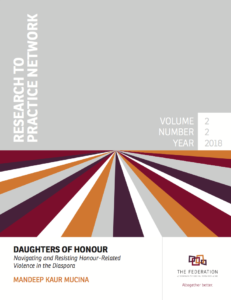What it means to be a part of this Federation
It was great to see so many of you at The Federation’s October Conference and General Meeting last week. And I am very happy to announce that our Federation is even stronger after welcoming the Prince George Native Friendship Centre and The Foundry as new members.
The theme of this conference—Caring for Our Clients, Caring for Ourselves—meant that we had a diverse group of speakers sharing a range of new perspectives, tools, and approaches for supporting and fostering wellness in our organizations. And at the same time, it also served as a subtle but beautiful reminder of the power and potential of this Federation. Over the years, I have heard a common refrain from members that fills me with both pride and purpose and I heard it again last week in Richmond: “Being a part of The Federation reminds me that I am not alone.”
This idea was a thread throughout the day. Elaine Decker’s Take Your Trickster to Work presentation revealed the importance of creating space for humour and creativity in the ways we lead our teams and work with each other. In Stephanie Curran’s talk on mindfulness, we were challenged to cultivate an awareness of our place, direction, and relationships to one another. And during Friday’s workshop (titled Take Care of Yourself, Take Care of Each Other, Take Care of This Place), we were reminded of the unequivocal power of sitting shoulder to shoulder with one another. (You can view recordings of the presentations below.)
A reminder that you are not alone
When each of your organizations joined The Federation you became an integral part of a vast network of smart and caring people—all of whom had also signed up to be a part of the same thing with the same passion and determination and desire for change. Being a member is more than just a title or a badge or a list of benefits. It is a commitment and a relationship; a relationship with The Federation and a relationship with each other.
One of the foundational principles of our Leadership 2020 program is: Ask for what you need and give what you can. It may not be made as explicit, but I truly believe that this way of being also applies to The Federation membership as a whole.
Have you been wondering what your colleagues are doing to recruit childcare staff? Ask them! Has your new model for family resource programs surprised you with its effectiveness? Share it with other members so they can apply it in their communities.
The Federation membership list is available to all of you (and can be found on the Member’s Section of our website) so that you can support and connect with each other. And our staff team is always available to help make those connections.
Ask for what you need, give what you can
In September, your Board of Directors met for two days of strategic planning. The main focus of that work was considering the ways in which members are engaged in the work of The Federation and engaged with each other. We will be circulating additional information with members next week. We are also planning to work through some of these ideas with our entire membership at the February General Meeting.
There are probably very few people in the province who truly and fully understand the challenges of your work. But I want to take this opportunity to remind you that you are closely connected with 130 other organizations full of caring, smart, and hard-working people that you can always count on.
You—our members—are the true power and potential of The Federation. You give us the strength and passion needed to continually advocate on behalf of this sector and the communities we represent. And I encourage you to also consider and leverage the power that exists in your connections to one another. That is what Altogether Better is all about.
Rick FitzZaland
Federation Executive Director
Conference & GM Recordings

Elaine Decker: Bring Your Trickster to Work

Stephanie Curran: Nurturing Mindfulness in Children, Youth, and Adults

Rick FitzZaland: Federation Organizational Update

Jennifer Charlesworth, BC Representative for Children and Youth


